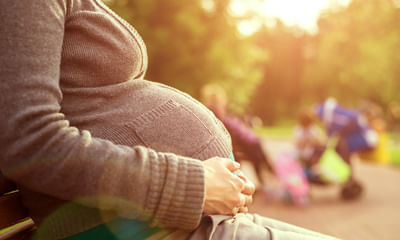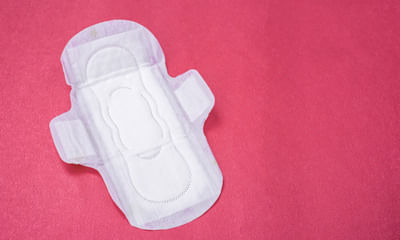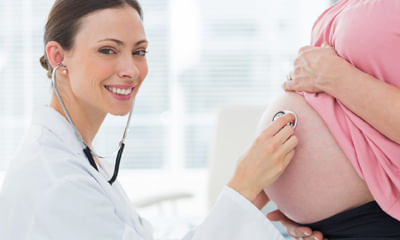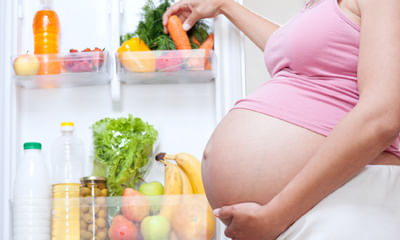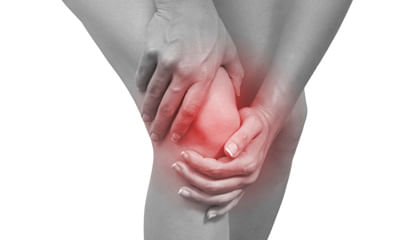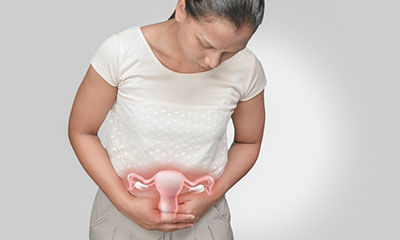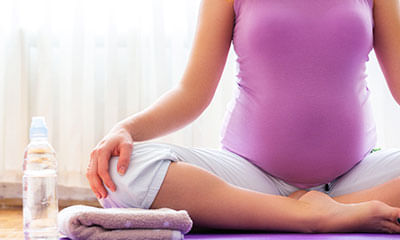Pregnancy 34 Weeks Baby Weight
Hey, i’m 32 weeks pregnant. I’m experiencing sharp pain in my vagina and lower abdomen. I’m also feeling tightness in my ...
Ask Free Question
Hii lybrate-user, may be you r having some false labour pains. With duvadilon you will feel good. No pain will persist. For your baby point of u.u need to increase protein diet with argipreg sachet twice daily. After 15 days go for color doppler sonography to rule out any growth retardation.
My wife is 35 weeks pregnant. Bile acid 32.9 Dr. suggested go for delivery this week. I want to know is there any proble ...
Ask Free Question
Small chance of problem yes. A gynecologist who has all details of patient is right person to decide.
Irregular periods last 4-5 months unable to pregnant previous I give birth a baby girl in 2013 normal delivery but now a ...
Ask Free Question
Hi, you seem to be suffering from hormonal imbalance called pcos. Kindly get your examination done by a gynaecologist. Weight is a sum total of bone, water, muscle and fat. You need to lose fat to get healthy. Eat small frequent meals every 2 -3 hours to improve metabolism and reduce fat. Have whole grain cereals like millets (bajra, jowar, ragi) and pulses and sprouts. Eat protein rich diet egg whites, sprouts (especially post workout, it will help in building muscle) and improve metabolism. Include healthy essential fat in your diet like nuts - almonds and walnuts, vegetable seeds like pumpkin, watermelon, sunflower seeds, etc. Eat fiber rich diet, it will help to gain early satiety and help you feel full - include fruits like citrus varieties, papaya and leafy vegetables in your diet. Eat heavy breakfast, as 40% of day’s energy comes from breakfast. Moderate lunch and light dinner with maximum fibre and protein’s. Avoid junk food, oily food, processed or canned foods. Drink a glass of water every hour daily to optimally hydrate the body. Exercise 40-45 minutes 4-5 times a week. Brisk walking, aerobics, jogging, skipping or any outdoor activity can be done. 3 days a week if resistance training is done it will help. Do not workout for 2 hours as this would lead to loss of muscle mass. Sleep of 7-8 hours will help in releasing all toxins and reduce bloating thus will lead to weight loss.
I am in 34 weeks pregnant and baby weight is 1479 gm and there is a 3 weeks ac, fl and efw lag in baby. On 28 th week ba ...
Ask Free Question
The baby's growth is lagging behind which may require premature delivery if there is distress with its complications. Some of them have been tried to be prevented by the betamethasone and arginine.Follow doctor's advice diligently and keep a close watch on fetal movements.
Hi I am monika 29 years old. Last month I got my total body checkup in that my glucose levels are high. I.e. Fasting glu ...
Ask Free Question
Normal fasting sugar is less than 100 mg%and your hba1c is at y upper end of normal value your bmi is 24 did you have gdm during last pregnancy? Is there history of diabetes in family? There is no reason to worry at present as values are still within range but as a precaution one should adopt healthy active life style such as doing exercises or brisk walking for 45 minutes a day for at least five days in a week eat leafy vegetables and fruits reduce total caloric intake by 10-15 by avoiding in between snacking and juices take juicy fruits as such instead of juice most important if you are calling second baby then take care that your sugar levels are normal for at least 3 months prior to conception.
Hi, I am 21 weeks pregnant, 5th months, baby weight is 380gms. Is it normal? How to increase baby weight, and also pleas ...
Ask Free Question
Weight is within normal range. Food high in protein- pulses, beans, milk, eggs, meat, in spite of taking all one can not manage to get required protein so best is to use supplements.
I have pain and burning below knees, ankles. Some ankles bone over growth. Seeking your advice and treatment. ...
Ask Free Question
Skeletal dysplasia a category of rare genetic disorders that affect bones and joints and hinder children's growth and development. The disorder causes abnormally shaped bones, especially in the head, spine and long bones of the arms and legs. About half of fetuses with skeletal dysplasia are stillborn or die within the first six weeks of life. But not all children with dysplasias have severe medical problems. Many of these children can live relatively normal lives the first indication that a baby has a skeletal dysplasia condition may arise during a routine prenatal ultrasound examination, usually one conducted in the second trimester of pregnancy. The image may show arms and legs shorter than average and a head larger than average. Developmental dysplasia of the hip doesn't cause pain in babies, so can be hard to notice. Doctors check the hips of all newborns and babies during well-child exams to look for signs of ddh. Parents could notice: the baby's hips make a popping or clicking that is heard or felt. Stretching and strengthening exercises or use of specialized devices may provide symptom relief. These include: physical therapy. A physical therapist can instruct you in a series of exercises to stretch the plantar fascia and achilles tendon and to strengthen lower leg muscles, which stabilize your ankle and heel. A therapist might also teach you to apply athletic taping to support the bottom of your foot. Night splints. Your physical therapist or doctor might recommend that you wear a splint that stretches your calf and the arch of your foot while you sleep. This holds the plantar fascia and achilles tendon in a lengthened position overnight and facilitates stretching. Orthotics. Your doctor might prescribe off-the-shelf or custom-fitted arch supports (orthotics) to help distribute pressure to your feet more evenly. Injections. Injecting a type of steroid medication into the tender area can provide temporary pain relief. Multiple injections aren't recommended because they can weaken your plantar fascia and possibly cause it to rupture. More recently, platelet-rich plasma has been used, under ultrasound guidance, to provide pain relief with less risk of tissue rupture. Lifestyle and home remediesto reduce the pain of plantar fasciitis, try these self-care tips: maintain a healthy weight. Lose weight if you're overweight or obese to minimize stress on your plantar fascia. Choose supportive shoes. Avoid high heels. Buy shoes with a low to moderate heel, good arch support and shock absorbency. Don't go barefoot, especially on hard surfaces. Don't wear worn-out athletic shoes. Replace your old athletic shoes before they stop supporting and cushioning your feet. If you're a runner, buy new shoes after about 400 to 500 miles of use. Change your sport. Try a low-impact sport, such as swimming or bicycling, instead of walking or jogging. Apply ice. Hold a cloth-covered ice pack over the area of pain for 15 to 20 minutes three or four times a day or after activity. Or try ice massage. Freeze a water-filled paper cup and roll it over the site of discomfort for about five to seven minutes. Regular ice massage can help reduce pain and inflammation. Stretch your arches. Simple home exercises can stretch your plantar fascia, achilles tendon and calf muscles. Heel pain prevention: maintain a healthy weight. Choose supportive shoes. Don't wear worn-out shoes. Apply ice. Ice. Use an ice pack or cold compress on your foot for 10 to 15 minutes at a time. This is especially beneficial at the end of a long day or when you’ve spent a lot of time on your feet. Or, roll a frozen water bottle under your foot. This method incorporates a bit of massage, relieving tightness in the bottom of your foot. Massage. Massaging the arch of your foot helps to relieve pain and promote mobility. Use your fingers and knuckles to deeply massage your foot for 1 to 5 minutes at a time. One technique is to place both thumbs at the center line of your arch and move them to the outer edges of your feet. Inserts. Use cushion inserts in your shoes for additional support and cushioning. Inexpensive options can be purchased off the shelf. Wear supportive shoes with thicker soles and extra cushioning for additional support that can help to reduce tension in the plantar fascia. Kinesiology tape can be used to improve arch and heel support. Night splints. Many people find quick and effective results by using night splints. They can be worn while sleeping to stretch the plantar fascia. They help to keep the plantar fascia relaxed and prevent you from pointing your feet down. Exercisefoot flexuse your hand to pull your toes back toward your shin. Hold this position for about 30 seconds. Do each side two to three times. Toe towel grab place a small towel under your foot. Curl your toes to grip the towel. Raise the front of your foot off the floor. Hold this position for a few seconds. Release the towel as you lift up your toes and spread them as far apart as possible. Heel and calf stretch to do this stretch: 1.stand facing a wall. 2.place your hands on the wall and move one foot back as far as you can comfortably. Toes on both feet should be facing forward, heels flat, with a slight bend in your knees. 3.lean into the stretch and hold for 30 seconds. You should feel the stretch in your back leg. 4.change legs and repeat. 5.do this stretch twice for both legs. Golf ball roll roll a golf baell under your right foot. Continue for up to 1 minute. Do each foot two to three times.
Hi, is anyone here who can answer my concern? I have pcos since 2018 and I take yazz pills for 4 years. My husband told ...
Ask Free Question
U will get withdrawal bleeding after stopping duphaston , unless u donât have any sides no need of worry itâs just progesterone only
Myself chaithra from karnataka weight 76 and height 160 cm I had missed abortion baby stops heartbeat at 8 weeks I got t ...
Ask Free Question
It will take Time for uterus to become normaland u have to give minimum 3 months time for uterus to become normal till then better not to become pregnant
I am 29 years old and 34 weeks pregnant. My afi level is 7.0 cm and not getting increased. My expected date is 6 sept so ...
Ask Free Question
Giving dns saline every day- has no effect on amniotic fluid. What you need is repeated sonography- biophysical score.

